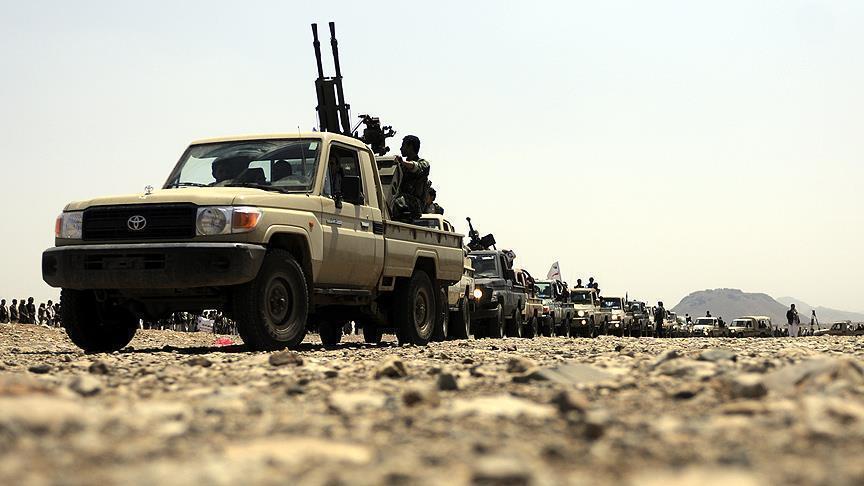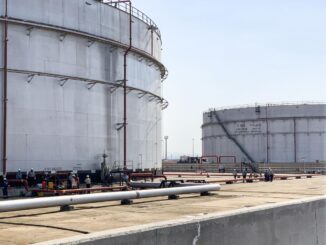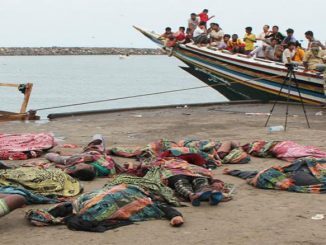
A bruising war in Yemen between Shia Houthi militiamen and Saudi-backed government forces has cast a pall over maritime traffic through the Bab el-Mandeb Strait, a strategic chokepoint for oil shipments from the Middle East and Central Asia, according to Anadolu Agency.
Earlier this month, the Houthis fired several rockets at a vessel from the United Arab Emirates traversing the strait.
And last week, two American warships in the Red Sea came under fire from inside Yemeni territory.
The U.S. Navy responded with a cruise-missile strike on three Houthi radar platforms deployed on Yemen’s Red Sea coast.
Though the Houthis denied responsibility for firing on the U.S. warships, Yemen’s Saudi-backed president, Abd Rabbuh Mansour Hadi, has accused the group of threatening international navigation in the Gulf of Aden and Bab el-Mandeb Strait.
The Bab el-Mandeb is a strategic maritime waterway linking the Indian Ocean and the Mediterranean through the Gulf of Aden and Red Sea.
An estimated 7 percent of international maritime traffic goes through the waterway each year. In 2014, more than 4.7 million barrels of oil were shipped through the strategic sea passage.
“The closure of the Bab el-Mandeb Strait would block oil shipments coming from the Gulf to the Suez Canal,” economics professor Youssef Saeed told Anadolu Agency.
Analysts warn the waterway’s closure would force ships to travel an extra 6,000 miles — around the Cape of Good Hope — to arrive in Europe from the Gulf region.
“This would effectively double transportation costs,” Saeed said.
-Maritime warfare
Yemeni political researcher Abdul-Nasser al-Mowada, for his part, ruled out the likelihood that traffic through the Bab el-Mandeb will be threatened by maritime warfare.
“International waterways are protected by international law,” he explained.
“The U.S. and France have a major presence in the strait, along with forces from other countries,” al-Mowada said.
The strait would only be exposed to “real danger”, he added, in the event that the Yemeni state experienced a “total collapse”.
“In that case, pirates, traffickers and terrorist groups like Daesh would attempt to capitalize on the situation for their own benefit,” he said.
Yemen has been racked by chaos since late 2014, when the Houthis and their allies overran capital Sanaa and other parts of the country, forcing members of Yemen’s Saudi-backed government to temporarily flee to Riyadh.
The conflict escalated in March of last year when Saudi Arabia and its Arab allies launched a massive military campaign aimed at reversing Houthi gains in Yemen and restoring Yemen’s embattled government.
According to UN estimates, more than 10,000 people have been killed in the conflict, while millions more have been internally displaced.



